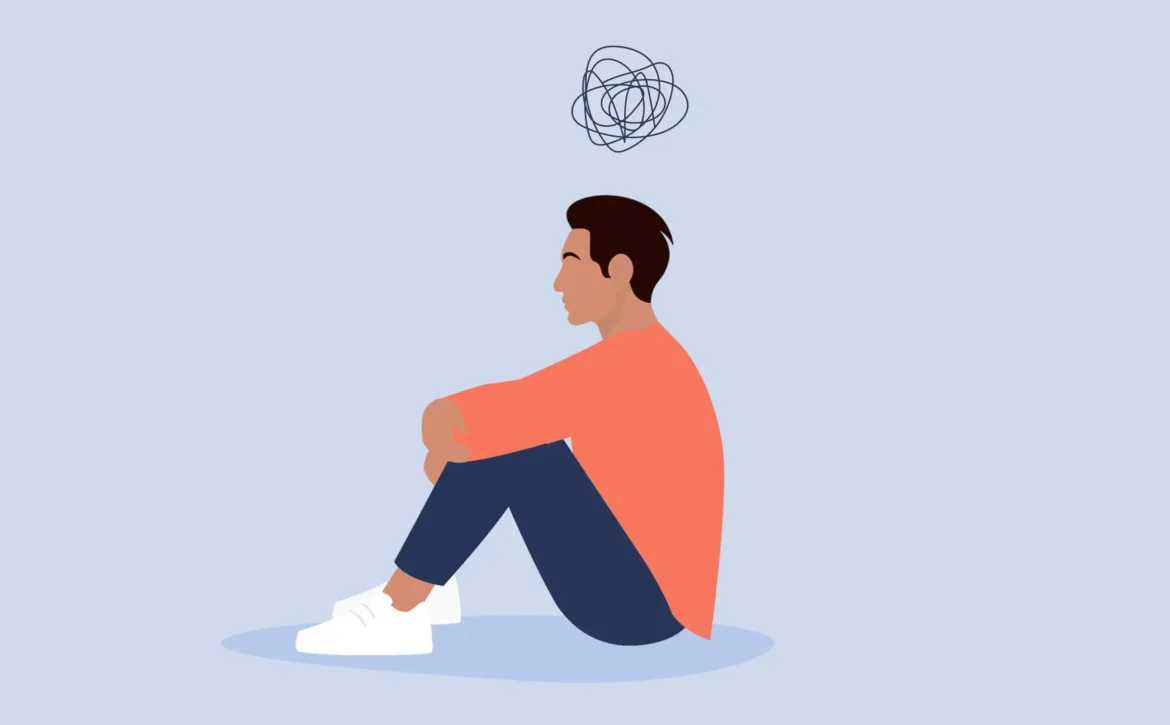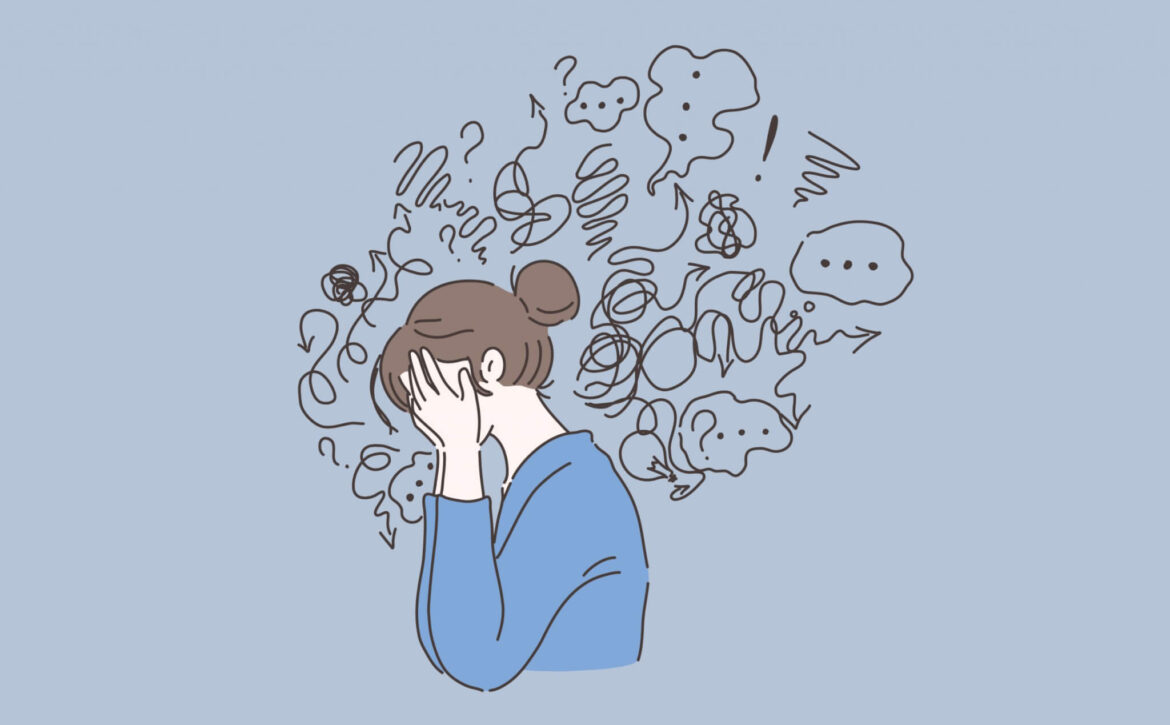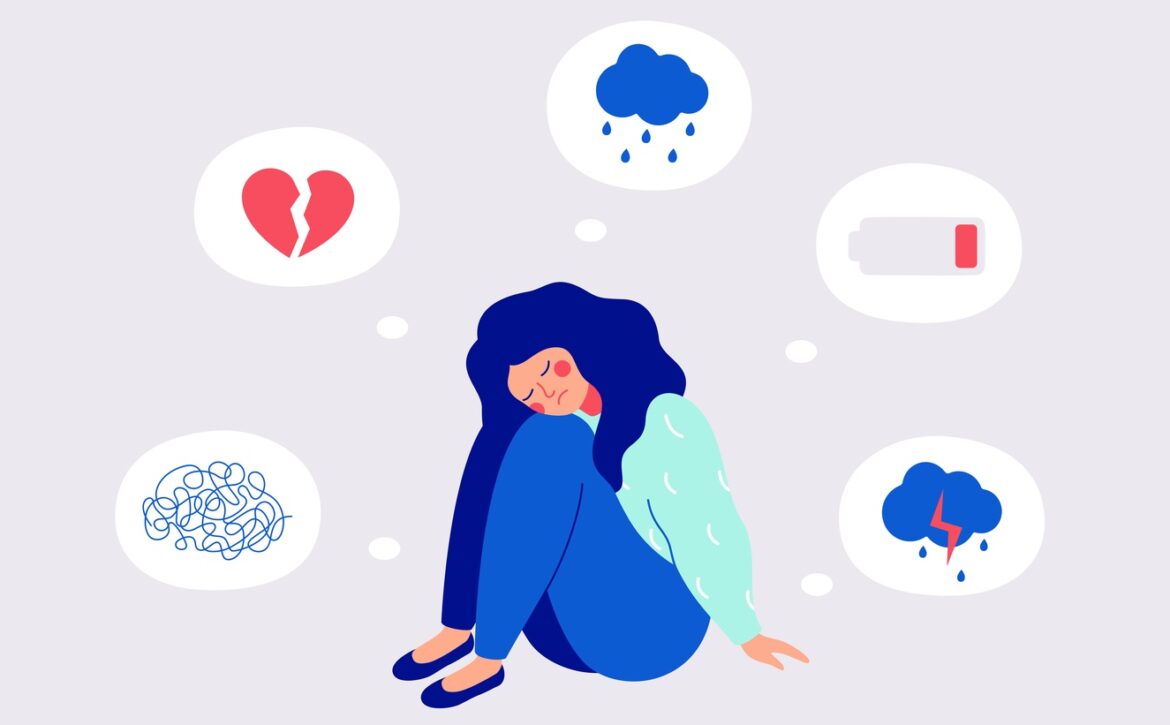How Do I Know If I Need Therapy for My Anxiety?
In the hustle and bustle of our daily lives, the thin line between normal stress and something more insidious often blurs. We’ve all experienced moments of unease, the fluttering butterflies in our stomachs before a big presentation, or the rapid heartbeat during a stressful deadline. But when do these familiar sensations evolve into something more, a relentless companion casting shadows over our everyday existence? The question that looms large is, “How Do I Know If I Need Therapy for My Anxiety?”
Anxiety is a silent companion, sometimes lurking in the shadows, making its presence known through subtle whispers of unease. According to recent statistics from the National Institute of Mental Health (NIMH), anxiety disorders affect roughly 31% of adults in the United States alone. Yet, the journey to recognizing the need for therapy is often filled with uncertainty.
So, how do we decipher the signs, and when do we know it’s time to seek professional help? Let’s do a self-discovery journey, untangling the knots that anxiety weaves into the fabric of our lives. Beyond the conventional wisdom, beyond the obvious signs, lies a path where we explore the question that many of us may grapple with in silence: “How Do I Know If I Need Therapy for My Anxiety?”
Beyond Butterflies: Unveiling the Uncommon Signs
While many are familiar with the classic symptoms of anxiety—racing heart, sweaty palms, and a racing mind—there are subtler indicators that often go unnoticed. Do you find yourself inexplicably fatigued despite a good night’s sleep? Or perhaps your appetite has taken a nosedive, leaving you with a constant pit in your stomach? These less-discussed symptoms can be equally telling.
Navigating the realm of mental health disorders requires a keen eye for the subtleties, especially when deciphering the uncommon signs of anxiety. Beyond the palpable indicators lies a nuanced language the body speaks—an unspoken dialogue that often manifests as unexpected physical symptoms. These signs, such as digestive issues, headaches, and muscle tension, could be silent cries for help, indicating anxiety levels that extend beyond the surface. A psychotherapist, well-versed in unraveling the intricacies of mental health conditions, becomes an essential guide in translating these subtle signals and restoring a balance that directly impacts one’s quality of life.
The Sneaky Art of Procrastination: Unmasking Coping Mechanisms
Procrastination might be a term thrown around lightly, but it can also be a subtle cry for help. When daily tasks become mountains, and simple decisions transform into Herculean challenges, it might be more than just a lack of motivation.
A study published in the Journal of Anxiety Disorders indicates that individuals with anxiety disorders often resort to avoidance behaviors, such as procrastination, as a way of coping with their overwhelming feelings. Recognizing these patterns could be the first step towards realizing that anxiety might be weaving its threads into the fabric of your daily life.
Cedarway Therapy: Guiding You Through the Storm
In the labyrinth of anxiety, professional guidance can be the beacon that lights the way forward. Cedarway Therapy, a haven for those navigating the storms of mental health, offers a holistic approach to well-being. Understanding that anxiety is not a one-size-fits-all experience, their seasoned therapists tailor their approach to each individual. What sets Cedarway Therapy apart is its commitment to fostering a safe and judgment-free space. It’s not just about tackling the symptoms; it’s about understanding the roots and empowering individuals to navigate their mental landscapes.
Breaking the Silence: The Power of Open Conversations
Recognizing the need for therapy can be a daunting realization, but it’s also an empowering one. It’s an acknowledgment that mental health is as crucial as physical health, and seeking help is not a sign of weakness but strength. Learn the “6 Things to Value That Can Improve Mental Health” and do not take it for granted!
The power of breaking the silence surrounding mental health conditions cannot be overstated. Engaging in open conversations about anxiety is a transformative step toward understanding and healing. It’s a recognition that mental health is a crucial component of overall well-being, and acknowledging the need for support is an act of strength. Psychotherapist Mississauga provides a safe space for individuals to articulate their struggles openly, fostering an environment where the unspoken can be shared without judgment. By encouraging these dialogues, mental health professionals empower individuals to take charge of their anxiety, fostering improvements that resonate deeply in their overall quality of life.
Conclusion
So, how do you know if you need therapy for your anxiety? The answer might be found in the nuances, the unspoken struggles, and the gentle whispers of your mind. It’s a journey of self-discovery, and Cedarway Therapy is here to walk beside you. Remember, taking that first step toward therapy is not just a decision; it’s a commitment to your well-being. Are you ready to embark on the path of healing?
Ready to transform the narrative of your anxiety? Cedarway Therapy beckons as your ally in this journey of self-discovery and resilience. Elevate your mental well-being with our seasoned psychotherapists in Mississauga, redefining your relationship with anxiety and reclaiming a life filled with vitality, purpose, and unwavering confidence. Your path to peace begins with a single step—schedule your appointment today, and let Cedarway Therapy guide you toward a brighter, more empowered tomorrow.
FAQs: How Do I Know If I Need Therapy for My Anxiety?
How can I differentiate between regular stress and a need for therapy for my anxiety?
If your stress transcends the normal bounds, infiltrating various aspects of your life and manifesting in physical symptoms like persistent fatigue or disrupted sleep, it may be time to consider therapy to address underlying anxiety.
Are therapy services only for severe anxiety, or can they help with mild symptoms too?
Therapy is beneficial across the spectrum of anxiety levels, from mild to severe. Seeking professional support early can equip you with tools to manage and mitigate anxiety, enhancing your overall well-being.
How do I know if a psychotherapist in Mississauga is the right fit for me?
Consider factors such as their expertise, approach, and your comfort level during initial consultations. A good fit fosters trust and rapport, creating a conducive environment for effective therapy.
Is it common to experience resistance or reluctance before starting therapy for anxiety?
Yes, it’s entirely normal to feel hesitant about therapy. Acknowledge these feelings, but also recognize the potential for positive change therapy can bring, helping you navigate and overcome such resistance.
Can therapy improve my quality of life beyond just managing anxiety symptoms?
Absolutely. Therapy not only addresses anxiety symptoms but also enhances your overall quality of life by providing coping mechanisms, fostering self-awareness, and promoting personal growth, allowing you to lead a more fulfilling and balanced life.




